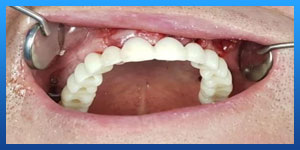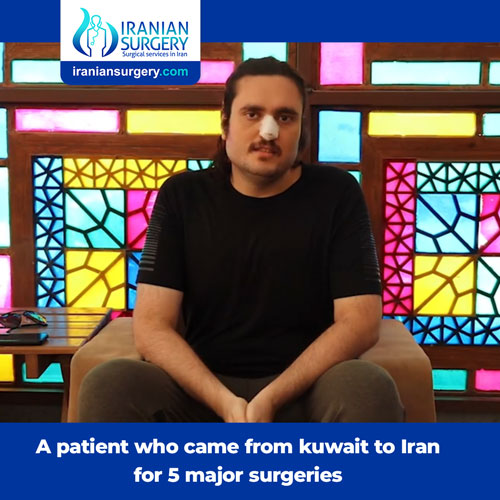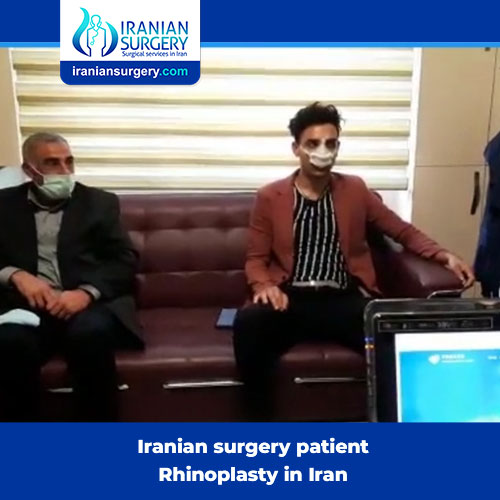Why do my teeth hurt after rhinoplasty ?
Can i brush my teeth after rhinoplasty?
How bad is the pain after rhinoplasty?
How to get rid of toothache after rhinoplasty?
The Nasopalatine nerve controls feeling in your four upper front Teeth (central and lateral incisors) and a small part of the roof of mouth behind these teeth. This Nerve passes through the nasal septum (the cartilage and bone dividing the middle of the nose).
Damage or swelling of this nerve during Septoplasty Surgery or rhinoplasty may cause a feeling of pain, numbness, or tingling in the upper front teeth for two to three weeks. The roof of the mouth in back of the upper frontal teeth may feel slightly burning or numb. This sensation will most likely decrease gradually as the septum heals.

If you feel any of these things after Septoplasty or rhinoplasty Surgery, Don’t worry as they will most likely heal after a while. If you are concerned about them, you may follow up with your surgeon who knows best about your procedure and who might prescribe some medication to help you during the few days after surgery.

Read more about : Rhinoplasty podcast with Dr Afshan shah
Read more about : Revision Rhinoplasty podcast with Dr Afshan shah
Read more about : Rhinoplasty surgery , Before and after surgery Videos
Read more about : Rhinoplasty in Iran
Read more about : Abdominoplasty and Breast reduction and bbl surgery , before and after surgery videos
Why do my teeth hurt after nose surgery?
If during rhinoplasty was done also a septoplasty (including the vomer bone from the septum) you may have some pain in the upper teeth and palate of the mouth, it's not a problem, and it's pretty common, that will resolve spontaneously over time over a couple of weeks.
Some patients also get some pain in their front teeth. This is because there is a nerve that runs from your nose to your front teeth that can get bruised during the procedure.
How to get rid of toothache after rhinoplasty?
After Rhinoplasty you may have pain in teeth, You should take proper pain killer tablets and in the proper amount. You can take Diclofenac Sodium 2-3 times daily to get rid of the pain. If you still feel pain after this, then you should consult your surgeon for a check up on possible hematoma or any other problem. Usually resolve quickly in 7 - 10 days with use of normal anti-inflammatory.

How painful is rhinoplasty recovery?
A rhinoplasty procedure will result in little to no pain at all , Following surgery, most patients experience mild to moderate discomfort that can be controlled with medication. Pain at any intensity will usually last for only 36 to 72 hours, but may last longer if the nose is manipulated or bumped.
Can you brush your teeth after rhinoplasty?
Brush your teeth gently and with a soft brush for some time after surgery and avoid manipulation of the upper lip so the nose will remain motionless. Avoiding stress and pressure on or around the nose makes a lot of good sense, but the nose isn’t the only area that must be treated gently during rhinoplasty recovery. Brushing your teeth might not be an activity you’d connect with your healing nose, but it’s important to take it easy while doing this twice-a-day activity. Aggressive tooth brushing can shift the upper lip and, potentially, affect the cartilage and tissue of the nose as it heals. You can still get a good brushing without moving around too much, so just keep this in mind when you pick up your toothbrush.
Read more about: Exercise after rhinoplasty
Read more about: How long after rhinoplasty can I get a facial?
Read more about : When can i touch my nose after rhinoplasty?
Read more about : How to clean nose after rhinoplasty?
Read more about : Signs of infection after rhinoplasty
Read more about : Crying after rhinoplasty
Read more about : When can i touch my nose after rhinoplasty?
Read more about : How long should i tape my nose after rhinoplasty?
Read more about : Blackheads after rhinoplasty
Read more about Rhinoplasty procedure steps






